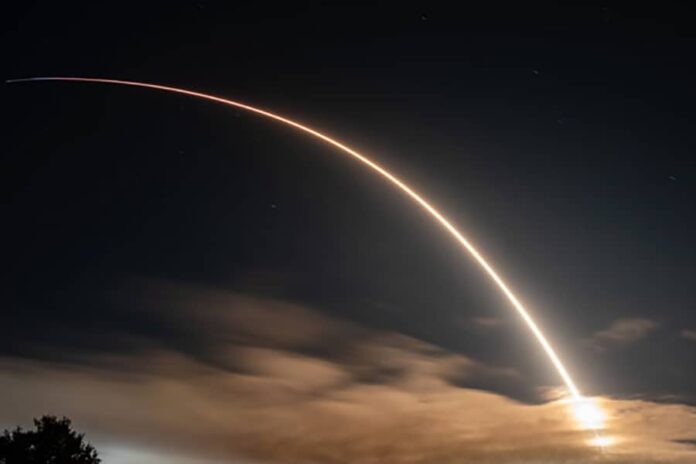The 400th Falcon 9 rocket soars to space on November 23, 2024, from Vandenberg Space Force Base, California. Image: SpaceX
Update 12:56 a.m. EST (0556 UTC): SpaceX landed its Falcon 9 first stage booster following liftoff.
Against the backdrop of a characteristically foggy night at the Vandenberg Space Force Base, SpaceX launched its 400th Falcon 9 rocket on an orbital flight. The Starlink 9-13 mission also marked SpaceX’s 100th launch to date from the West Coast.
Liftoff from Space Launch Complex 4 East (SLC-4E) happened at 9:25:30 p.m. PST (12:25:30 a.m. EST, 0525:30 UTC). SpaceX didn’t publicly announce its target T-0 prior to launch, but the CelesTrak website said SpaceX provided it with that launch time.
The mission appeared to be the first time that SpaceX would not stream the launch or booster landing live. Unlike previous recent missions, SpaceX didn’t made a statement on its profile on X, formerly Twitter, about the upcoming launch or how to view it.
Suddenly at 12:27 a.m. EST (0527 UTC), nearly two minutes after liftoff, SpaceX began streaming onboard camera views from its Falcon 9 rocket. SpaceX founder Elon Musk also shared a link to the livestream two minutes after it began.
Onboard the Starlink 9-13 mission are 20 V2 Mini satellites, of which 13 feature Direct to Cell capabilities. Deployment of the satellites was confirmed just over an hour after liftoff.
The Falcon 9 first stage booster for this mission, tail number B1075 in the SpaceX fleet, launched for a 15th time. It previously supported the launches of Transporter-11, SDA-0A, SARah-2 and 11 Starlink satellites.
A little more than eight minutes after liftoff, B1075 landed on the SpaceX droneship, ‘Of Course I Still Love You.’ This marked the 110th booster landing on OCISLY and the 373rd booster landing to date.


